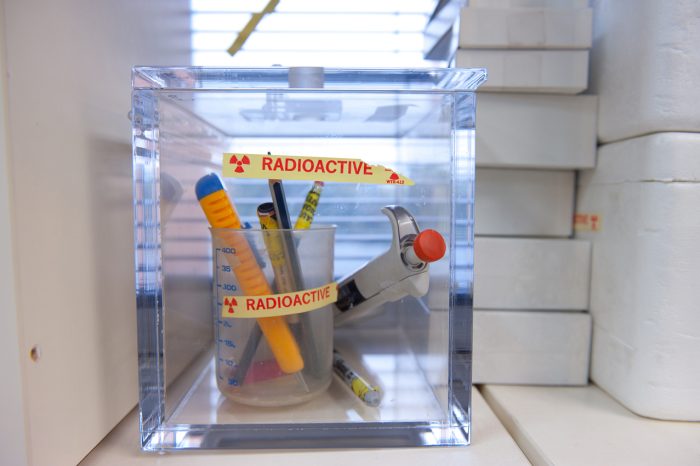

Radiolabelling Peptides & Peptidomimetics
Theme 2
Radiopharmaceuticals play a key role in the diagnosis and treatment of diseases. However, the synthesis of radiopharmaceuticals can be challenging due to the need for multiple synthetic steps, and the challenges associated with the specificity and efficiency of radiolabelling the peptides or peptidomimetics.
To enable the widespread use of radiopharmaceuticals, strategies for the late-stage or direct labelling of peptides are needed.
Key innovative approaches being developed at DART that will allow for late-stage or direct labelling, are:
- Novel chemistry that will allow the use of automated instruments for incorporation of the radionuclides.
- The development of novel chelators and radiometals for conjugation to specific targeting peptides
- Development of methodology to allow direct incorporation of radionuclides into peptides and peptidomimetics
- Modification of amino acid residues to allow for enhanced in vivo stability, bioactive topography and regioselective chelation of radionuclides
Theme Leaders

Prof. Craig Hutton
Prof. Craig Hutton
Professional Background:
Craig Hutton is a Professor in the School of Chemistry and Associate Dean (Infrastructure) in the Faculty of Science at The University of Melbourne. He undertook his undergraduate and PhD degrees at the University of Adelaide before completing postdoctoral studies at the University of California, Berkeley and The University of Melbourne. He started his independent academic career at The University of Sydney before returning to The University of Melbourne.
Research Interests:
The Hutton Lab research interests include the development of novel synthetic methods for the assembly and functionalization of peptides, and the chemical biology of cyclic peptide natural products. DART Centre projects will focus on the development of radiolabelled amino acids and peptides for cancer imaging.


Prof. Kellie Tuck
Prof. Kellie Tuck
Professional Background:
Prof. Kellie Tuck is a T&R academic in the School of Chemistry and is the Associate Head – International Affairs. She obtained her PhD from the University of Adelaide and subsequently held postdoctoral research positions at the University of South Australia, Australia, and the University of Cambridge, UK, before returning to Australia. She is engaged in a number of interdisciplinary research programs that combine organic chemistry with analytical chemistry, chemical engineering, and/or biology.
Research Interests:
Her group’s research program focusses on the synthesis of functional molecules for diverse applications, spanning supramolecular chemistry, medicinal chemistry, and sustainable surfactant development. DART Centre projects focus on novel bifunctional chelators for imaging applications, and the development of theranostic agents.







